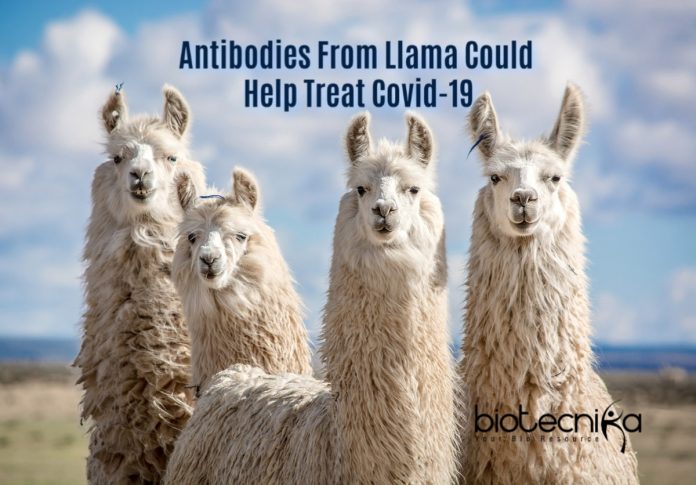Antibodies From llama To Treat Covid-19
Researchers at the National Institutes of Health and Ghent University in Belgium and the University of Texas at Austin reported in the journal Cell that they had developed a potential COVID-19 treatment involving llama, a South American animal. The research paper currently being peer-reviewed is available online.
The team of scientists created a new antibody by linking two copies of a special antibody from llamas. This new antibody binds to the key protein called spike protein on the novel coronavirus. The new antibody blocked viruses with spike protein from infecting cells in culture.
Jason McLellan, the co-author of the paper and associate professor of molecular biosciences at UT Austin, said this is one of the first antibodies known to neutralize the novel coronavirus.
The researchers will now test the antibodies in animals like nonhuman prima
tes and hamsters. They are hoping to develop an effective treatment against COVID-19.To provide protection against Covid-19, vaccines need to be given a month or two before the infection. But antibody treatments give immediate protection after the administration. It can also be used to treat those who are already infected.
For vulnerable groups like old people who have a weak response to vaccines, this would be especially helpful. Their protection could be incomplete if vaccines are used. This immediate protection can also benefit those who are at increased risk of exposure like health workers.
The llamas’ immune system produces two types of antibodies when it detects viruses and bacteria; One that is similar to human antibodies and another that’s only about a quarter of the size. These nanobodies or single-domain antibodies can be nebulized and used in an inhaler.
Daniel Wrapp, co-first author of the paper and a graduate student in McLellan’s lab, said the drug is delivered right to the sight of infection, and this makes the drug really interesting.
Winter – The llama
Winter is a 4-year-old llama living in the Belgian countryside along with other alpacas and llamas. The researchers were studying two earlier coronaviruses MERS-CoV and SARS-CoV-1, in 2016, when nine months old Winter happened to be a part of the research. In the course of about six weeks, she was injected with stabilized spike proteins from those viruses in a process similar to humans getting shots to immunize them against a virus.
The antibodies that bound to each spike protein were isolated from the blood samples of Winter. One of them showed real promise in blocking the spike protein from SARS-CoV-1.
The team linked two copies of the llama antibody to engineer the new antibody against SARS-CoV-2. The new antibody was found to neutralize the spike protein from the novel coronavirus in cell culture. Thanks to the years of work they have already done on other coronaviruses, they were able to publish the results in a top journal in a matter of weeks.
The spike protein was also mapped by the research team, which is a critical step towards the vaccine.
Backstory
VHH-72, the first antibody they isolated, that tightly bound to SARS-CoV-1 blocked the activity of a pseudotyped virus. A pseudotyped virus is a virus that is genetically engineered to display copies of the SARS-CoV-1 spike protein on its surface but does not male people sick.
The team wondered if this antibody would be effective against the new virus SARS-CoV-2 as the Covid-19 emerged. The found the antibody bound to the virus, but weakly. To make them bind more effectively, they linked two copies of VHH-72. Thus they developed the first antibody to effectively neutralize both SARS viruses.
The paper’s other authors are Gretel M. Torres, Kenny Roose, Wander Van Breedam, Markus Hoffmann, Loes van Schie, Barney S. Graham, Stefan Pöhlmann, and Nico Callewaert.
Editor’s Note; Antibodies from llama to treat Covid-19, Antibodies to be tested in animals.






























